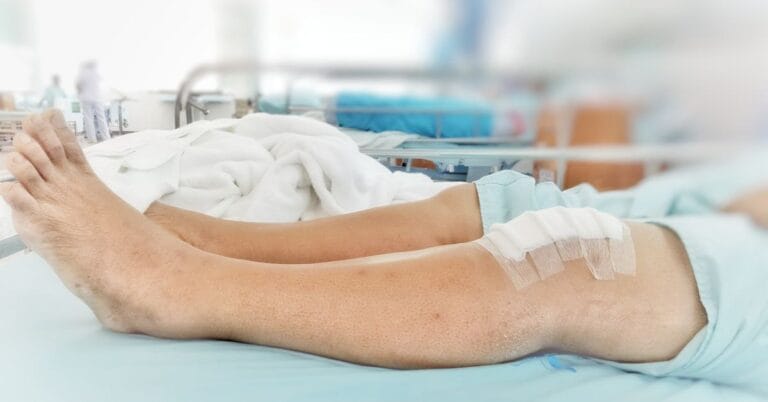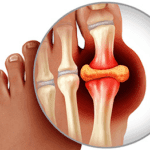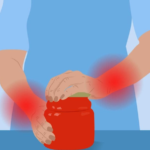You may have to keep your leg straight, but you can sleep in any position
You may wonder if it’s OK to try different positions. “In general, getting enough sleep is more important than your sleep position,” explains orthopaedic surgeon Joseph Tramer, MD. “Back, side and even stomach sleeping are OK if they help you get the rest you need.”
Why meniscus surgery affects sleep
When nonsurgical treatments for a meniscus tear don’t help, knee surgery may be your best option. Your surgeon typically performs meniscus surgery as an arthroscopic (minimally invasive) procedure. It involves two small incisions on either side of your knee, just below your kneecap.
Meniscus surgery is usually an outpatient procedure, so you go home the same day. Pain and swelling are normal in the first few weeks after surgery. Muscle spasms can also occur.
“Discomfort can be worse at night, especially after an active day,” says Dr. Tramer. “Your mind also tends to focus on these sensations when you’re lying in bed, making it difficult to sleep.”
Tips to get your best sleep after meniscus surgery
Dr. Tramer offers five suggestions to help you get a good night’s rest:
1. Find a comfortable position
Your surgeon may want you to limit how much you bend your knee after surgery. That might mean wearing a brace to keep your leg straight. If you have a brace, it’s important to keep it on — even at night.
“As long as you follow your surgeon’s directions for not bending your knee, your sleep position won’t affect the healing process,” says Dr. Tramer. “It’s fine to sleep in whatever position is most comfortable for you.”
2. Elevate your leg to reduce swelling
Swelling can increase stiffness and pain after meniscus surgery. The best way to reduce swelling is to elevate your leg above your heart. Elevation uses gravity to improve circulation and reduce the buildup of fluid in your knee.
Use pillows to give your leg a lift:
- For back sleeping: Try creating a ramp of pillows to raise your leg. Put one pillow under your knee and two pillows under your ankle.
- For side sleeping: Lie on your “good” side with a pillow between your knees to elevate your leg slightly. A pillow will also prevent your knees from bumping together, which can be painful.
3. Take pain medication before bed
Your surgeon will prescribe pain medications, which most people only need for the first few days. After that, over-the-counter anti-inflammatory medications, such as ibuprofen, are usually all you need.
“Time your medication so you take your last dose of the day an hour before bed,” advises Dr. Tramer. “This can help ease nighttime discomfort that might keep you awake.”
4. Stay active during the day
It may be tempting to stay in bed — after all, you just had surgery. But being active is important for recovery. It also helps use up your energy, so your body wants to sleep.
“I encourage people to walk as much as possible after meniscus surgery, even if it’s on crutches,” says Dr. Tramer.
5. Follow good sleep hygiene practices
Sleep hygiene is a set of strategies to help you fall asleep faster and stay asleep longer. Anyone who has trouble sleeping can benefit from better sleep hygiene — including someone who just had surgery.
“Avoid foods and beverages that might interfere with sleep, such as caffeine and alcohol,” recommends Dr. Tramer. “Swapping screens for calming activities, such as reading or sleep meditation, can also help.”
What to avoid after meniscus surgery
The most important thing to avoid after meniscus surgery is overexertion. You should be active — but listen to your body. If you need to rest, put your leg up and take a short nap.
Returning to work is a common concern after meniscus surgery. “Even if you have a desk job, I recommend taking time to get better before going back to work. If you work on your feet, you may be out for several months,” explains Dr. Tramer.
When to call your surgeon
If you have muscle spasms or ongoing pain that’s not managed by your medications, call your surgeon. They can prescribe medications to relieve your symptoms so you can sleep better.
The first few weeks after meniscus surgery can be challenging. But soon, your sleep patterns should be back to where they were before surgery. And as you rest and recover, your knee will be in better shape, so you can do all the things you enjoy.





